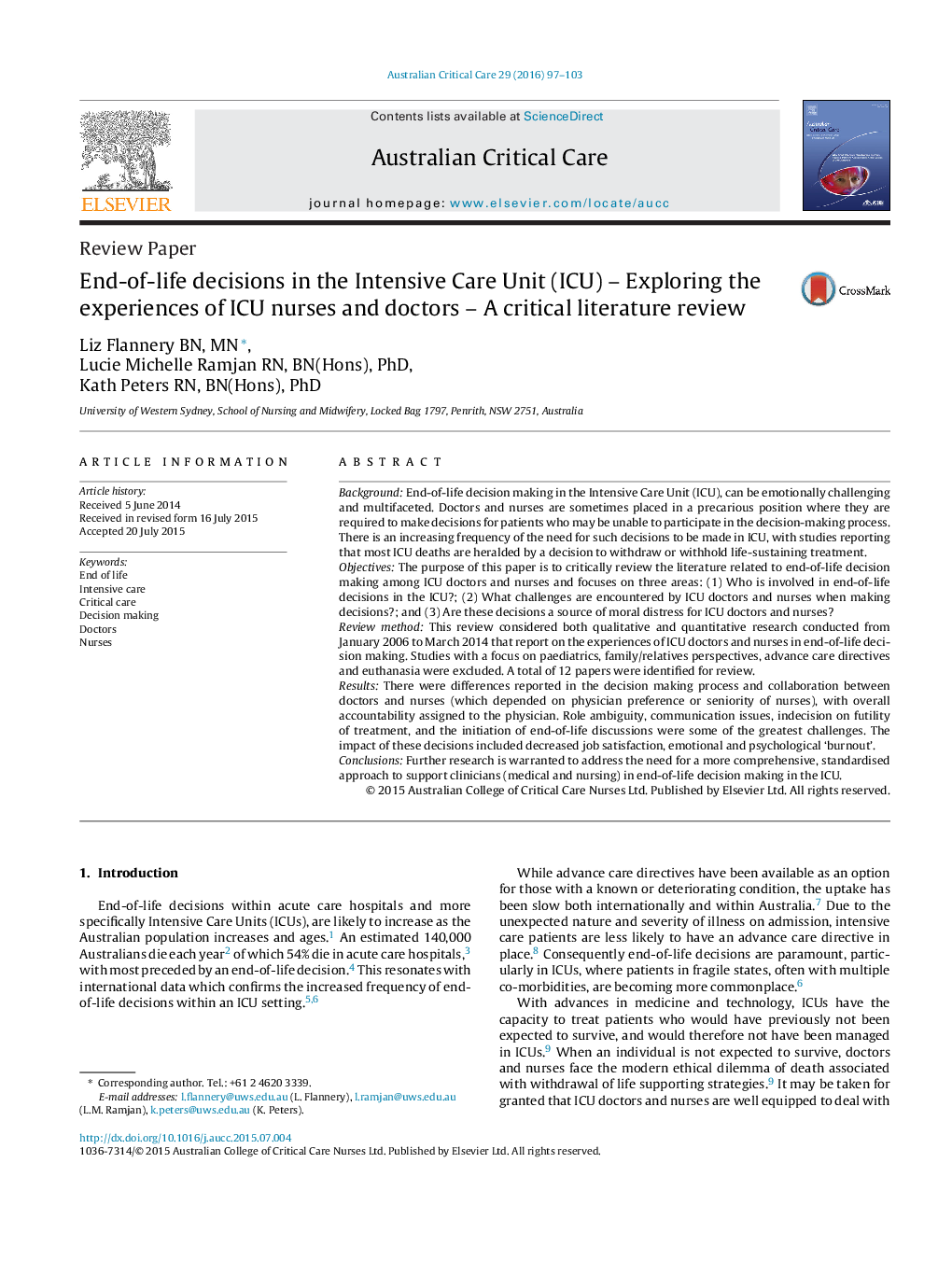| کد مقاله | کد نشریه | سال انتشار | مقاله انگلیسی | نسخه تمام متن |
|---|---|---|---|---|
| 5863202 | 1134203 | 2016 | 7 صفحه PDF | دانلود رایگان |
BackgroundEnd-of-life decision making in the Intensive Care Unit (ICU), can be emotionally challenging and multifaceted. Doctors and nurses are sometimes placed in a precarious position where they are required to make decisions for patients who may be unable to participate in the decision-making process. There is an increasing frequency of the need for such decisions to be made in ICU, with studies reporting that most ICU deaths are heralded by a decision to withdraw or withhold life-sustaining treatment.ObjectivesThe purpose of this paper is to critically review the literature related to end-of-life decision making among ICU doctors and nurses and focuses on three areas: (1) Who is involved in end-of-life decisions in the ICU?; (2) What challenges are encountered by ICU doctors and nurses when making decisions?; and (3) Are these decisions a source of moral distress for ICU doctors and nurses?Review methodThis review considered both qualitative and quantitative research conducted from January 2006 to March 2014 that report on the experiences of ICU doctors and nurses in end-of-life decision making. Studies with a focus on paediatrics, family/relatives perspectives, advance care directives and euthanasia were excluded. A total of 12 papers were identified for review.ResultsThere were differences reported in the decision making process and collaboration between doctors and nurses (which depended on physician preference or seniority of nurses), with overall accountability assigned to the physician. Role ambiguity, communication issues, indecision on futility of treatment, and the initiation of end-of-life discussions were some of the greatest challenges. The impact of these decisions included decreased job satisfaction, emotional and psychological 'burnout'.ConclusionsFurther research is warranted to address the need for a more comprehensive, standardised approach to support clinicians (medical and nursing) in end-of-life decision making in the ICU.
Journal: Australian Critical Care - Volume 29, Issue 2, May 2016, Pages 97-103
